-
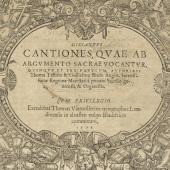
Sacred songs and a waste-paper bible
-
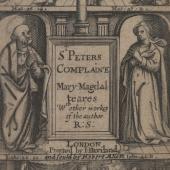
Literary corpus: the works of Robert Southwell
-
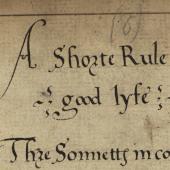
Recusancy in manuscript
-

Memorialising an author: Herbert’s Temple
-
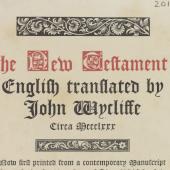
A belated Wycliffite testament
-
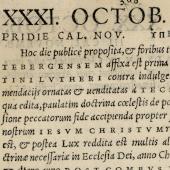
The anniversary of Luther’s Theses in the sixteenth century
-
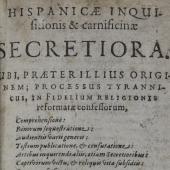
Inquisition and controversy
-
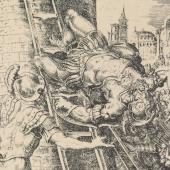
The sack of Rome
-
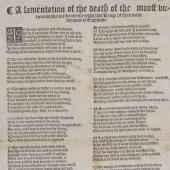
The death of King Henry VIII, ‘extincter’ of ‘supersticion’ and ‘sturdy Idolls’
-
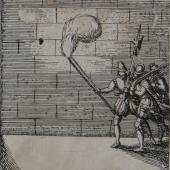
The St Bartholomew’s Day massacre
-
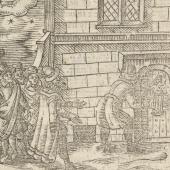
Gunpowder, treason, and woodcuts
Events
Remembering the Reformation
Events are produced by historical memory of them. A punctual moment on a timeline—the evening of the fifth of November, 1605, for example—stands in cultural memory not on its own but in relation to other events, and to the present from which it is viewed. And events so constituted exert pressure on the present and on the future as well. This exhibition is keyed to one of the most over-determined events in Western history, an event that took place in Wittenberg five hundred years ago and remains the sine qua non of any Reformation timeline, the point from which we begin and around which research projects are built. But the non-fixity of events means they are always contingent, can always be revisited and reconsidered. Etymologically, an event is an emergence: it changes over time as it is remembered and re-remembered, situated within historical narratives that evolve along with the desires and politics of popular culture and the discipline of history alike. The punctuality of an ‘event’ and the dynamic, fungible qualities of memory are thus always in tension, so that to ‘remember the Reformation’ necessarily entails attending to the history of that remembering as well.
The items in this category all point to the ways in which events—large and small—can be located at multiple moments in time, not only their origin points but at each stage of their remembering. Literary history and book history also furnish models for understanding the movement of events through time, and how the constitution of a text, artifact, or person in historical memory can itself be understood as a kind of ‘event’. Thinking literarily can also assist us in sustaining the tension between the punctuality of an event and the phenomenality of memory, as attention to representation, figuration, and narrative structures offer dynamic means of engagement with the past.